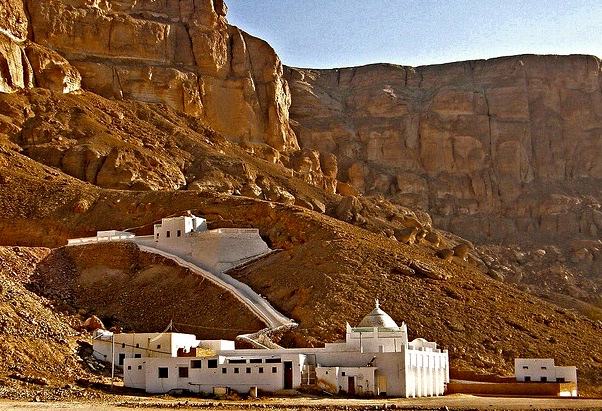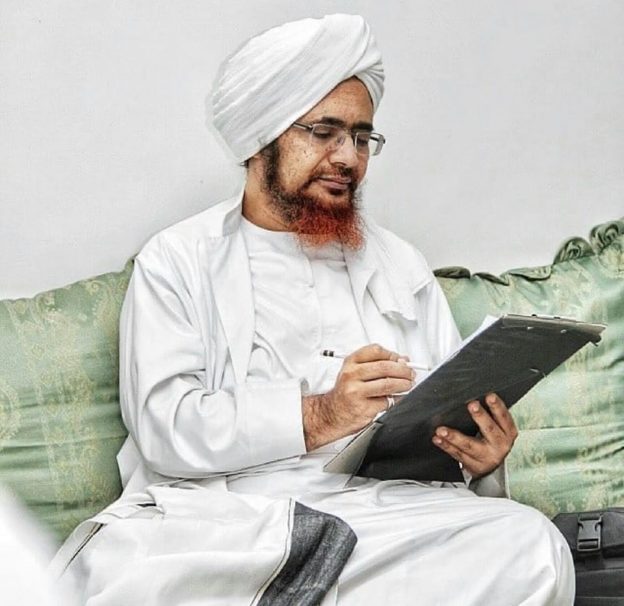This prayer is taken from Sayyidi Habib Umar bin Hafiz’s collection of prayers using Allah’s beautiful names in which he calls upon Allah by His beautiful names and then asks Him to bestow prayers upon His Beloved by those names. Finally, he asks Allah for a portion of those attributes which belong to Allah and which He has bestowed upon His Messenger ﷺ. Continue reading Salawat with Allah’s Beautiful Names: Ya Rashid (the Guide to what is right)
Month: October 2015
Insights into Purification: Removing Impurities (Part Two)
It is possible to purify something which has been contaminated with filth but it is impossible to purify something which is itself filth. It is impossible to purify excrement, even if you washed it twenty times. The filth would in fact increase.
Likewise, through an intention, an act that is merely permissible can become something that is recommended or it can become something that is forbidden. Eating is praiseworthy if it is done with the intention to gain strength to worship Allah. However, an intention has no effect on an act that is forbidden. Stealing someone’s money with the intention of giving it to the poor does not make stealing permissible. Continue reading Insights into Purification: Removing Impurities (Part Two)
Commemorating the Emigration of Imam al-Muhajir
In the month of Muharram, we commemorate the emigration of Imam al-Muhajir il-Allah, Ahmad bin ‘Isa, to the Hadramawt Valley.
It was on 14th Muharram that he arrived in the region and he was the first of the Prophetic Household to settle there. His progeny, later to become known as the Ba ‘Alawi, went on to spread Islam to the far corners of the earth. It has been said that the migration of the Prophet ﷺ was from Makkah to al-Madinah, and the migration of his offspring was from Iraq to Hadramawt.
The scholars of Hadramawt, at their forefront Habib Abu Bakr al-Adani al-Mashhur, commemorate this event with a series of lectures and gatherings, culminating in an annual visit.
To learn more about this great Imam, please go to: https://muwasala.org/imam-al-muhajir/
May Allah reward Imam al-Muhajir and allow us to continue to reap the fruits of his efforts.
VIDEO: True Honour and the Events of Ashura
Extracts from a khutbah delivered by Sayyidi Habib Umar bin Hafiz in Masjid al-Rawdah, Tarim, 7thMuharram 1436 / 31st October 2014
The events which took place on Ashura remind us that all honour belongs to those who are beloved to Allah, even if the opposite appears to be the case. Continue reading VIDEO: True Honour and the Events of Ashura
Salawat with Allah’s Beautiful Names: Ya Warith (the Inheritor)
Allah says: “then We gave the Book as inheritance to those whom We chose of Our servants.” (35:32) In this prayer, Sayyidi Habib Umar bin Hafiz (may Allah preserve him and benefit us by him), teaches us to seek our portion of that inheritance. Continue reading Salawat with Allah’s Beautiful Names: Ya Warith (the Inheritor)
VIDEO: Joy and Sadness for Sayyiduna al-Husayn
By Habib Ali al-Jifri (may Allah protect him and benefit us by him)
According to the Ahl al-Sunnah, the Day of Ashura is a day of joy because of the salvation of Sayyiduna Musa. There is no doubt that it is also a day of sadness since it was the day on which Sayyiduna al-Husayn was martyred along with his relatives and some of the Ansar. Continue reading VIDEO: Joy and Sadness for Sayyiduna al-Husayn
The Day of Ashura
The Day of Ashura, the tenth of Muharram, is an auspicious day. It has been narrated that it was the day on which Allah forgave our father Adam, the day on which the Ark of Nuh came to rest on the mountain known as al-Judi after six months at sea, and the day on which Allah forgave the people of Yunus (peace be upon him and all the Prophets). Continue reading The Day of Ashura
Salawat with Allah’s Beautiful Names: Ya Badi’ (the Wondrous)
This prayer is taken from Sayyidi Habib Umar bin Hafiz’s collection of prayers using Allah’s beautiful names in which he calls upon Allah by His beautiful names and then asks Him to bestow prayers upon His Beloved by those names. Finally, he asks Allah for a portion of those attributes which belong to Allah and which He has bestowed upon His Messenger ﷺ. In this prayer, he calls upon Allah, the Wondrous to bestow prayers upon His Beloved, the most wondrous of His creation in every sense. Continue reading Salawat with Allah’s Beautiful Names: Ya Badi’ (the Wondrous)
Teaching People About the Hijrah
Answered by Sayyidi Habib Umar bin Hafiz (may Allah protect him and benefit us by him)
What are the most important themes to focus on when teaching people about the Hijrah?
We should teach people about the truthfulness and patience of the Prophet ﷺ in giving victory to Allah’s cause and leaving one place for another. We should also talk about how he interacted with the things that Allah has decreed to take place in this life, such as people harming us and being given power over us. Continue reading Teaching People About the Hijrah
How Does a Seeker Study his Shaykh?
Answered by Sayyidi Habib Umar bin Hafiz (may Allah protect him and benefit us by him)
How does a seeker study his Shaykh?
The seeker studies his shaykh by reflecting upon his states and what they signify and upon the directions that he gives (isharat), his wayfaring and his Prophetic inheritance. He then seeks to benefit from this and become illuminated by it.






